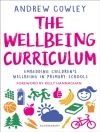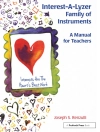Transforms our understanding of Louisiana Creole community identity formation and practice
Over the course of more than three centuries, the diverse communities of Louisiana have engaged in creative living practices to forge a vibrant, multifaceted, and fully developed Creole culture. Against the backdrop of ongoing anti-Blackness and Indigenous erasure that has sought to undermine this rich culture, Louisiana Creoles have found transformative ways to uphold solidarity, kinship, and continuity, retaking Louisiana Creole agency as a post-contact Afro-Indigenous culture. Engaging themes as varied as foodways, queer identity, health, historical trauma, language revitalization, and diaspora, Louisiana Creole Peoplehood explores vital ways a specific Afro-Indigenous community asserts agency while promoting cultural sustainability, communal dialogue, and community reciprocity.
With interviews, essays, and autobiographic contributions from community members and scholars, Louisiana Creole Peoplehood tracks the sacred interweaving of land and identity alongside the legacies and genealogies of Creole resistance to bring into focus the Afro-Indigenous people written out of settler governmental policy. In doing so, this collection intervenes against the erasure of Creole Indigeneity to foreground Black/Indian cultural sustainability, agency, and self-determination.
Over de auteur
Andrew Jolivétte is professor of ethnic studies at the University of California, San Diego. He is the author of Indian Blood: HIV and Colonial Trauma in San Francisco’s Two-Spirit Community (University of Washington Press, 2016), Research Justice: Methodologies for Social Change (Policy Press, 2015), Louisiana Creoles: Cultural Recovery and Mixed-Race Native American Identity (Lexington Books, 2007), and Cultural Representation in Native America (Alta Mira Press, 2006).












